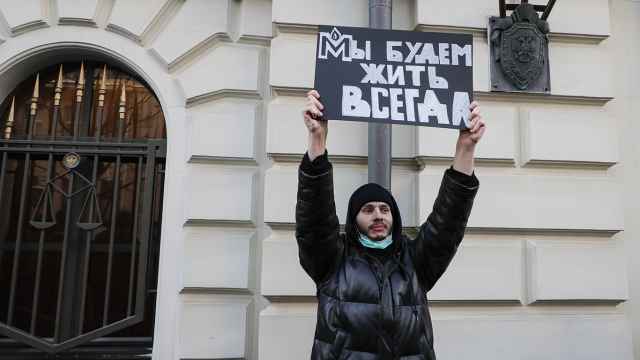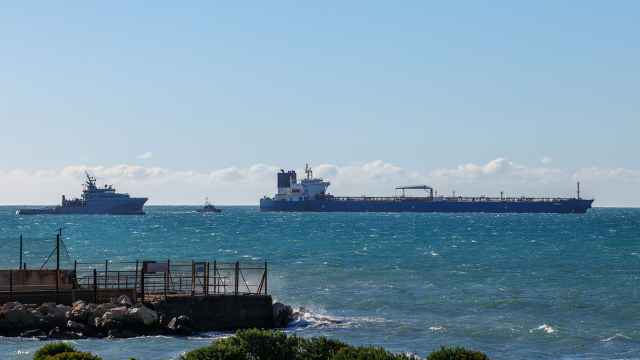The Moscow-Kazan high-speed railway concession project was presented to potential investors on Tuesday, in advance of expected government approval for the project due in March.
A tender for construction of the line, in which participants are expected to invest in exchange for long-term return out of operating revenue, is slated for the end of this year.
The overall price for the railroad has grown since its inception last year from 928 billion rubles ($25.5 billion) to 1 trillion rubles ($27.5 billion).
This is still cheaper than most international analogues. The railroad will cost about $40 million per kilometer, while according to PriceWaterhouseCoopers, the global average is $49 million.
"This is a first project of this kind for Russia, it equals three to four similar ones in Europe," said Alexander Misharin, the head of Skorostniye Magistrali, Russian Railways' subsidiary in charge of high-speed rail development.
The railroad will be the first true high-speed line in Russia. With trains wheezing on track at up to 400 kilometers per hour, the rail trip from Moscow to Kazan, which today can take close to 13 hours, will be reduced to 3.5 hours. The closest rival is the Moscow-St. Petersburg line, where trains run at up to 240 kilometers per hour.
Under the finalized financial scheme for the project, more than 300 billion rubles, or 30 percent of the total sum, will come directly from state coffers. Another 31 percent will come jointly from Russian Railways, the Pension Fund and the National Welfare Fund. Private companies who want to participate will have to provide a quarter of the overall financing using their own funds or loans while another 14 percent could come as loans to private companies issued under government guarantees.
The line was divided into four segments, each planned to be built simultaneously. Russian Railways will construct the first segment, the 197 kilometer stretch from Moscow to Vladimir, on its own. The other three segments are planned to be built by consortia of private companies under concession agreements.
A number of international companies are interested in the project. Consortia of French, Spanish, German, Chinese and Italian firms and conglomerates reportedly submitted preliminary applications.
"We are building three high-speed lines with similar systems in France," said Marc Svechine, the head of the high-speed rail development project in Russia at French state rail operator SNCF. He said there are a number of large operating and manufacturing companies in his country ready to come to build the line and to provide the trains for it.
One of them is Vinci Concessions, which is already involved in the construction of the Moscow-St. Petersburg toll highway. And French manufacturer Alstom earlier said that it is ready to supply the high-speed trains for the line.
Siemens, which has produced the Sapsan trains for the high-speed rail link between Moscow and St. Petersburg, is also eyeing the new project.
"We can use the experience we have with Sapsan to produce new trains that will run at 400 kilometers on the Moscow to Kazan line," said Rolf Epstein, CEO of complete transportation solutions department at Siemens.
Completion of the Moscow-Kazan high-speed railroad is scheduled for 2018.
At the end of last year Prime Minister Dmitry Medvedev said that state funding for the high-speed line should be postponed until a more in-depth calculation made into its cost and a technical evaluation of the whole project is done.
A political decision to build the rail line that would connect Moscow and Kazan, 770 kilometers to the east, was first announced by President Vladimir Putin at the St. Petersburg Economic Forum last year.
Contact the author at [email protected]
A Message from The Moscow Times:
Dear readers,
We are facing unprecedented challenges. Russia's Prosecutor General's Office has designated The Moscow Times as an "undesirable" organization, criminalizing our work and putting our staff at risk of prosecution. This follows our earlier unjust labeling as a "foreign agent."
These actions are direct attempts to silence independent journalism in Russia. The authorities claim our work "discredits the decisions of the Russian leadership." We see things differently: we strive to provide accurate, unbiased reporting on Russia.
We, the journalists of The Moscow Times, refuse to be silenced. But to continue our work, we need your help.
Your support, no matter how small, makes a world of difference. If you can, please support us monthly starting from just $2. It's quick to set up, and every contribution makes a significant impact.
By supporting The Moscow Times, you're defending open, independent journalism in the face of repression. Thank you for standing with us.
Remind me later.





